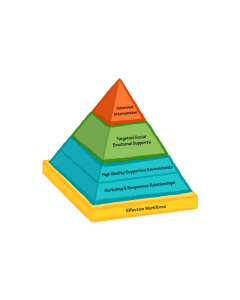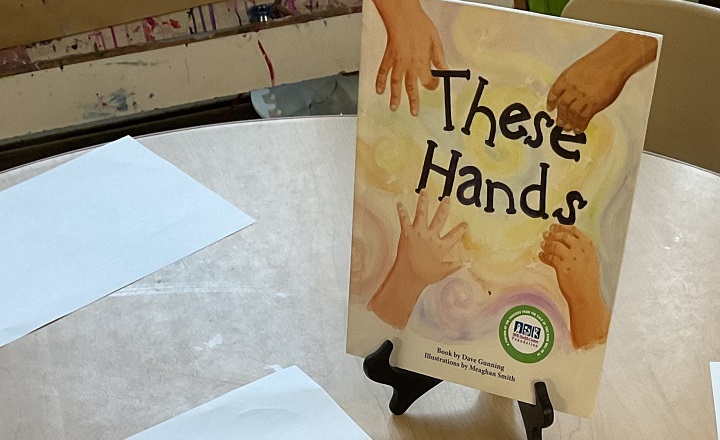At the Child Study Centre we are committed to advancing equity, diversity, inclusion, and accessibility through the work we do with children. We aim to drive deep cultural and transformative change through our programming. We provide an inclusive environment by meeting educators, staff, children, and families’ needs in a way that is respectful, supportive, and culturally responsive.
As a team, we have developed an anti-racism and anti-discrimination stance which can be found in our parent guide.
Our inclusive approach builds on the strengths of the child and celebrates their successes through holistic play-based learning. Below are our EDIA guiding principles:
- Equity: We aim to provide equitable opportunities for every child and family. This ensures that they each have the supports needed to thrive and reach their full potential. Our program and practices are attuned to the individual needs of families and children, by creating an environment where equity is enacted and brought to life through educators’ intentionality in holding space for conversations and discussions about racial privilege and systemic oppression and inequities in a developmentally appropriate way.
- Diversity: We are committed to creating and fostering an environment that values multiple backgrounds, perspectives, and beliefs by incorporating social and cultural practices that are reflective of the families in our centre.
- Inclusion: We practice inclusivity by encouraging families and children to bring their whole selves into our space. We empower children by valuing their contribution and promote their participation in all aspects of our program. We also strive to create a gender-neutral environment where gender stereotypes are challenged, and gender expressions and identities are respected.
- Accessibility: We aim to create a safe, welcoming, and inclusive environment that supports children’s social, cultural, emotional and physical well-being. We ensure the Child Study Centre is accessible through adaptations in the environment (eg., ramps for wheelchair access) and programming (for example, PBS: Positive Support Plan, IPP: Individual Program Plan, and ongoing assessments).
- Culturally Responsive Programming: Delivering culturally responsive care is vital to our work at the Child Study Centre in order to reflect the growing diversity in our society. We strive to develop intercultural practice and reflection to understand and support the cultural background and unique experiences of each family to optimize children’s learning experiences. We are aware of the needs of newcomer families, and are committed to providing high-quality child care that enhances their migration experience.
- Advocacy and Allyship: The Child Study Centre strongly advocates for the rights of all children and families at our facility and the community at large, irrespective of their race, ethnicity, gender, disability, sexual orientation. We also engage in ongoing allyship by using our privilege and power to support communities that are systemically marginalized and by challenging oppression.
 The Pyramid Model at the Child Study Centre
The Pyramid Model at the Child Study Centre
The Child Study Centre participates in the Pyramid Model initiative led by Nova Scotia Early Childhood Development and Intervention Services (NSECDIS). The goal of the Pyramid initiative is to support social and emotional health of all children across the province. The Pyramid Model is a framework of evidence-based practices for promoting young children’s social and emotional development. To support all children, a coaching approach to professional development and skill development is used. That means that an NSECDIS Inclusion coach comes into our centre to directly support and coach educators in Pyramid Model practices.
